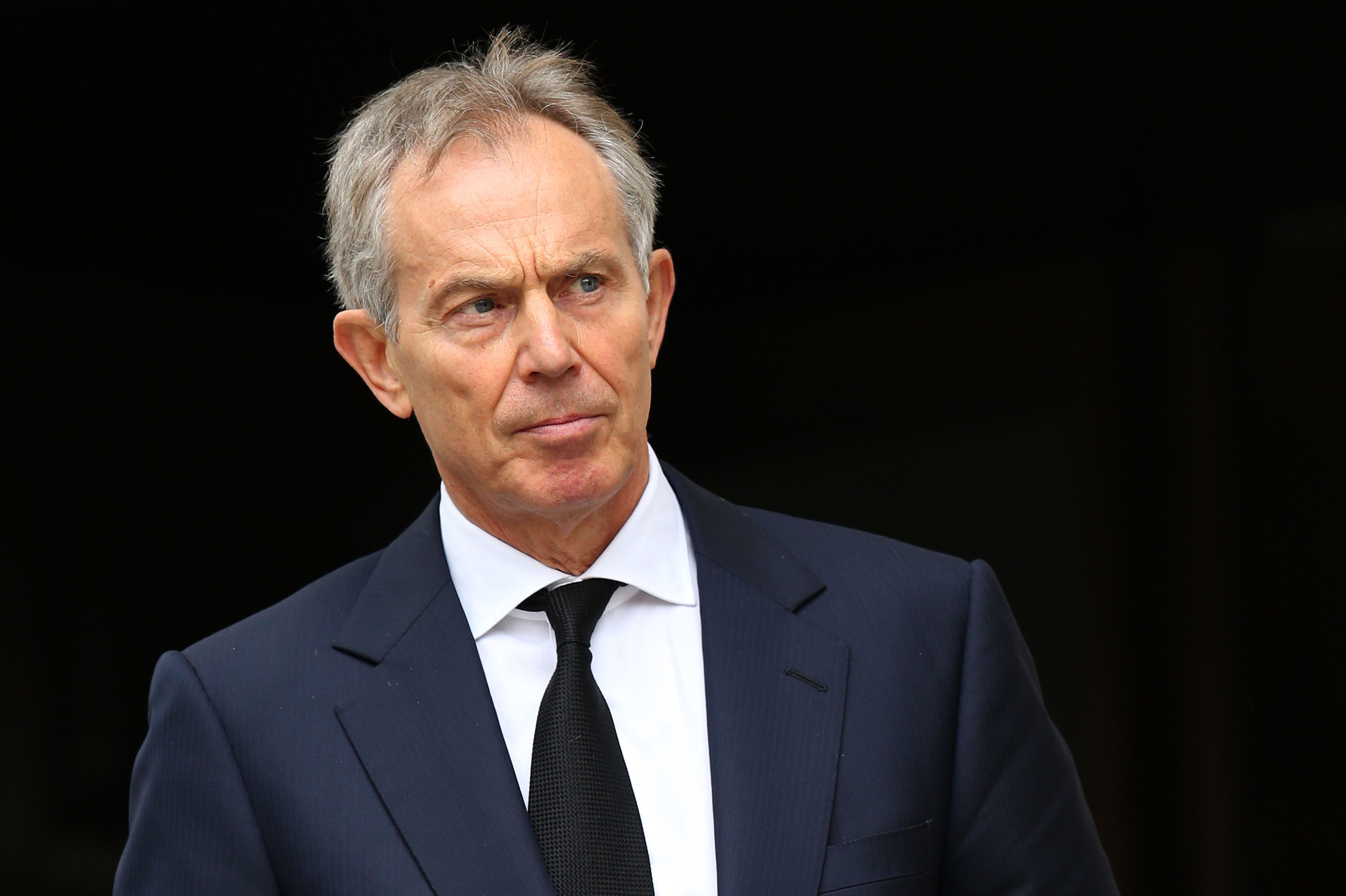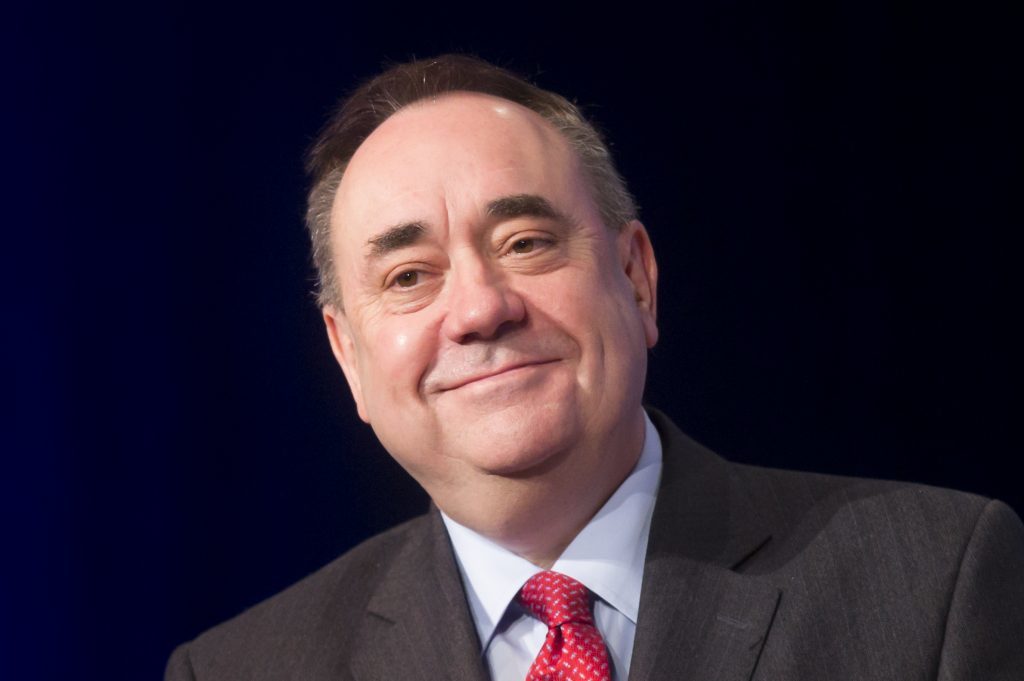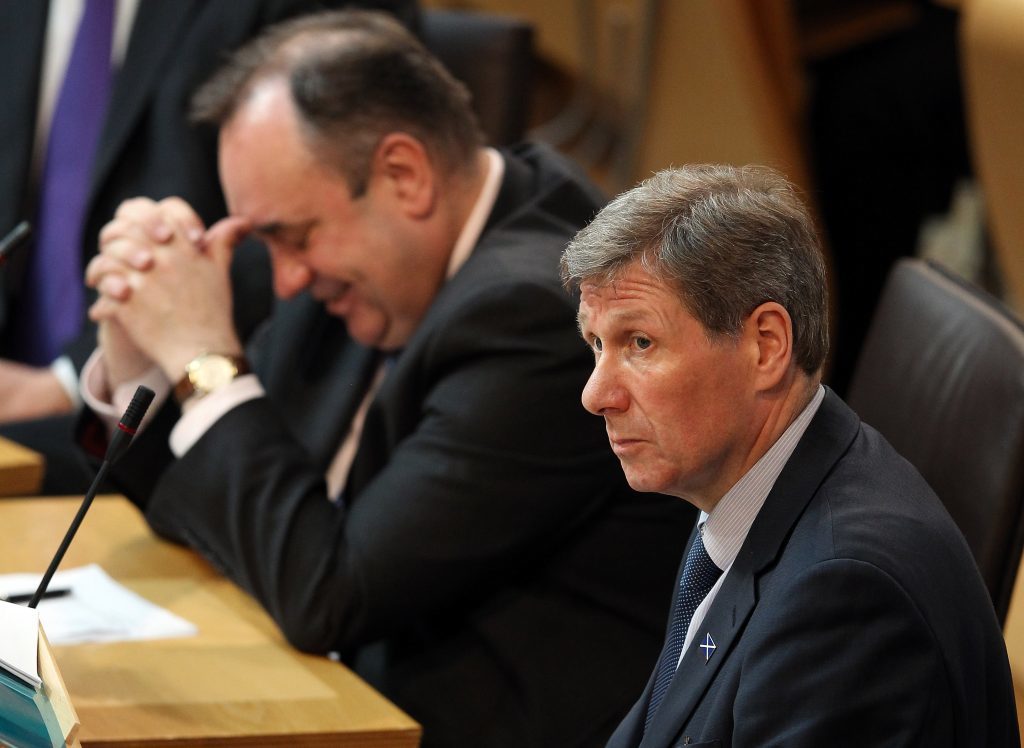Few politicians divide opinion as much as Tony Blair. The former Prime Minister resigned almost nine years ago, after a decade in Number 10, but still his enemies continue to hound him.
Leading these at present is Alex Salmond, ex Scottish First Minister and now an MP with apparently far too much time on his hands.
Salmond has made a lot of noise over the past few days about his wish to see Blair impeached over the 2003 invasion of Iraq, a decision which will always haunt the most successful ever Labour leader.
Although Blair’s conduct in taking Britain to war has been the subject of the lengthy Chilcot investigation, due to publish its findings at long last this summer, Salmond wants to jump the gun.
It was he, as one of just a handful of Scottish Nationalists at Westminster, who first launched a cross-party campaign to impeach the Prime Minister in 2004.
Among Salmond’s parliamentary backers then were a motley crew of Scots and Welsh separatists, and mavericks such as George Galloway and Boris Johnson, with outside support from Greens, the Stop the War Coalition, and those on the extreme left (Jimmy Reid) and extreme right (Frederick Forysth).
Presumably Salmond has chosen to revive his crusade now because he smells blood in the Chilcot report and does not want to miss the opportunity to rub an old foe’s nose in it.
Also, going after such a high profile adversary provides this one-time big fish with a chance to grab some headlines. Salmond is his party’s foreign affairs spokesman so an overseas war in within his remit.
But surely there must be far more pressing issues on the agenda than a long gone PM, especially one who is already the focus of a major inquiry.
Salmond is pushing for Blair to be brought before the International Criminal Court (ICC) for the crime of aggression, if Chilcot finds he pre-committed Britain to war during a conversation with the then US president George W Bush.
It would, said Salmond, be down to a group of citizens to ‘take this evidence to the office of the prosecutor of the ICC and ask him or her to investigate’.
As it turns out, the International Criminal Court doesn’t have the jurisdiction to try suspects for the crime of aggression. The court might also reckon that its case load is rather heavy, what with all the global atrocities it must handle, such as genocide, ethnic cleansing, killing and maiming children, attacking schools, and so on.
Whatever one’s view of Blair and the Iraq war, he was a democratically elected UK premier facing a difficult choice and did what he thought was right at the time. There is a strong body of opinion – not least in Iraq – that defends him, and history may well judge him more generously than contemporary commentators.
However, he remains a popular target. If Salmond cannot pursue him through an international channel he will no doubt try the domestic route of the House of Commons, which does have its own process of impeachment.
The question though is why does Salmond, of all politicians, feel it is his place to occupy the moral high ground over Blair or anyone else?
The veteran Nationalist has several qualities as a political operator but trustworthiness is not top of the list. His relationship with facts has sometimes been shaky and on occasions he has been forced by a court to reveal the truth.
For instance, it emerged in 2013 that he had spent nearly £20,000 of taxpayers’ money to keep secret legal advice about an independent Scotland’s EU status that never even existed.
This week we learnt that he was less than transparent over the release of the Lockerbie bomber. According to the former SNP justice minister Kenny MacAskill, he and Salmond, then the First Minister, tried to broker a deal with the Labour government to free Abdelbaset Ali Mohmed Al Megrahi.
Although Salmond had insisted Megrahi would not be sent back to Libya in 2007, he later realised the matter was beyond his control and sought to gain concessions from London in return for freeing him, MacAskill alleges in his new memoir.
At the time, the Scottish executive made much of the fact that Megrahi’s release was on purely compassionate grounds – because he was suffering from terminal cancer – and Salmond said claims he had struck a backroom deal were ‘balderdash’.
The old SNP leader is said to have missed the limelight since he handed over to Nicola Sturgeon and moved to Westminster. Never happy in the shadows, it is hardly surprising that he is tempted to draw attention to himself now and again.
But only a politician with unquestionable probity could take up cudgels against a former British prime minister and expect to be treated seriously. Salmond is not that man.





